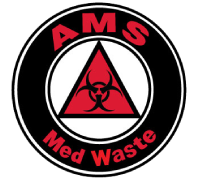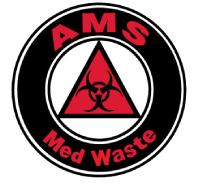Pharmaceutical waste management is critical to healthcare operations, as improper disposal can severely affect the environment, public health, and regulatory compliance. This comprehensive guide will help clinics and hospitals navigate the complexities of pharmaceutical waste management to ensure safe, efficient, and compliant practices.
Pharmaceutical Waste: Gaining Insight
Pharmaceutical waste includes expired, unused, or contaminated medications and items contaminated with pharmaceuticals, such as vials, IV bags, and syringes. These wastes can be classified into two main categories:
1. Hazardous Pharmaceutical Waste
Hazardous pharmaceutical waste threatens human health or the environment and is regulated by the Resource Conservation and Recovery Act (RCRA). Examples include chemotherapy drugs, some antibiotics, and controlled substances.
2. Non-Hazardous Pharmaceutical Waste
Non-hazardous pharmaceutical waste does not immediately threaten human health or the environment but still requires proper disposal. Examples include over-the-counter medications, vitamins, and supplements.
Healthcare facilities must identify and segregate hazardous and non-hazardous pharmaceutical waste to ensure appropriate handling and disposal.
Developing a Pharmaceutical Waste Management Plan
A successful pharmaceutical waste management plan should include the following components:
1. Waste Identification and Segregation
Properly identify and segregate pharmaceutical waste according to federal and state regulations. This may involve training staff to recognize different types of waste, using designated containers for hazardous and non-hazardous waste, and implementing clear labeling practices.
2. Staff Training and Education
Educate staff on the importance of pharmaceutical waste management, the risks associated with improper disposal, and the facility’s waste management policies and procedures. Regular training and reinforcement can ensure compliance and reduce the risk of errors.
3. Safe Storage and Disposal
Store pharmaceutical waste in secure, designated areas to prevent unauthorized access, spills, or leaks. Partner with a licensed medical waste disposal company specializing in pharmaceutical waste management to ensure these materials’ safe and compliant transportation and disposal.
4. Recordkeeping and Reporting
Maintain accurate records of pharmaceutical waste generation, storage, and disposal, as federal and state regulations require. These records may include waste manifests, disposal certificates, and training documentation. Regularly review and update records to ensure accuracy and compliance.
Critical Considerations for Pharmaceutical Waste Management
To optimize your practices, healthcare facilities should consider the following factors:
1. Regulatory Compliance
Stay up-to-date on federal and state regulations, as non-compliance can result in fines, penalties, and reputational damage. Ensure staff are trained on current regulations, and that waste management policies and procedures align with these requirements.
2. Environmental Stewardship
Implement environmentally friendly practices to minimize the impact of pharmaceutical waste on the environment. This may include recycling initiatives, energy-efficient waste disposal technologies, and partnerships with eco-conscious providers.
3. Cost Management
Evaluate the cost-effectiveness of pharmaceutical waste disposal practices and seek opportunities to reduce expenses. This may involve negotiating contracts with waste disposal providers, optimizing waste segregation processes, or implementing waste reduction strategies.
Pharmaceutical waste management is a complex but essential aspect of healthcare operations. By developing a comprehensive waste management plan, training staff, ensuring regulatory compliance and considering environmental and cost factors, clinics and hospitals can create a safer and more sustainable healthcare environment. With proper planning and execution, healthcare facilities can successfully navigate the challenges of pharmaceutical waste management and contribute to a healthier future for all.
Transform Your Healthcare Facility’s Waste Management Practices with AMS MedWaste
Experience stress-free service by partnering with AMS MedWaste. This will allow your facility to focus on what matters most – providing top-quality patient care. Our team of experts will help you navigate the complexities of waste management, ensuring regulatory compliance and promoting environmental stewardship.
When you choose AMS MedWaste, you’ll enjoy the following:
– Customized waste management plans to suit your facility’s needs
– Comprehensive guidance on waste segregation and proper disposal
– Compliance Training that will help your establishment comply with all medical waste guidelines.
– A wide variety of secure medical waste containers tailored to your requirements
– Environmentally-friendly practices through our Go Green initiative
Ready to transform your healthcare facility’s waste management practices and achieve peace of mind? Reach out for a free consultation with AMS MedWaste today and experience the difference!






